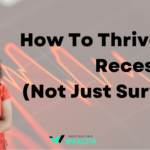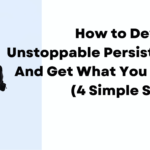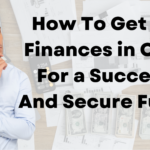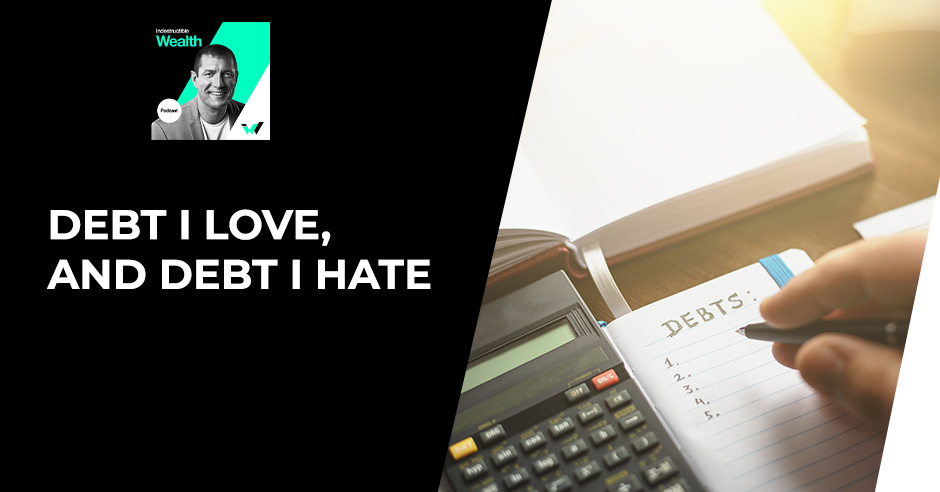
In this episode, I confront the typical notions about debt (i.e., all debt is bad) and let you inside my personal approach to debt as a tool for wealth building. Tune in to discover how to use debt to accelerate your wealth.
—
Table of Contents
Listen to the podcast here
Debt I Love, and Debt I Hate
Debt is bad, evil, and needs to be eliminated. Pay off all your debts. Debt makes you poor. I could go on and on. Have you ever heard any of this advice? It’s very true that there are certain types of debt that unless you eliminate them, you virtually have almost no shot at building any sustainable wealth. The drag on your finances from bad consumer debt is too much for the vast majority of folks unless you’re banking on getting lucky and hitting the lottery.
The drag on your finances from bad consumer debt is too much for most folks unless you're banking on getting lucky and hitting the lottery. Share on XLet me go on record and say that I love debt. Debt makes me wealthy, accelerates my returns, helps me to reduce my tax liability, and helps me buy assets that I normally would not be able to buy, at least not for a long time. Debt helped me turn a $12,000 cash investment into a $100,000 increase in net worth in five years, all while creating immediate cashflow that I could enjoy or reinvest into other projects. In this episode, I’ll walk you through my personal philosophy on the types of debt that I hate, and the ones that I love. Be prepared to have your paradigm shifted about the role of debt in your financial life.
We’re going to discuss Step Number 3 of the 7-Step Strategic Plan. Before we get into that, I got to tell you I got an incredible wife, Kara. When they talked about, “You married up. You out kicked your coverage,” all those things where you got somebody that was super more hot better than you. That was the case with my wife. She’s tan, fit, beautiful, forgiving, loving, and kind and all those incredible qualities, pretty much lend themselves to where we’re opposites.
I do love people. I am caring. I want to make the world a better place and all that, but opposites are attracted to this situation. She was asking me, “When can I tune in to your show?” I’m like, “I don’t think you’d be interested at all, plus I cuss. That’s even two strikes, finances and cussing. I don’t think this is for you.” Will she tune in to them? She probably will just to see what I say. She can maybe reprimand me at a later point, “Jack Gibson.” I know I’m in trouble when I get the full name, then I’m like, “What do I do now?”
My full legal name is John Robert Gibson, but I go by Jack. A lot of people don’t know that. A lot of people are called Jack at least back. Jack has become a popular name over the last decades. Many years ago, those people that are in that age, that’s very common. Jack is a nickname for John. I don’t know if you knew that. I’m educating you on all parts of life.
I don’t think my wife is interested in finances. We were at the dinner table and I took a call. It was before dinner was served but the call went longer than I want. It was with my property manager on a property in Alabama and Arizona. He’s three hours behind. It is dinner time and I needed to talk to him. We’ve been playing bow tag. I took the call and I wasn’t there at dinner. I sat back down and I felt a little bit of tension. She’s pretty understanding and she knows I don’t usually take a call during dinner.
I put my phone facedown on the kitchen counter so that it’s not anywhere near me at dinner and I don’t pay any attention to it. Dinner time is family time. Besides, our family time is super entertaining because my boys are super raunchy. We let them get away with it and they push the envelope. It’s great. I was talking to my property manager and I find out that a property that I bought for $80,000 a few years ago in Arizona, I’ve had leveraged ever since then so I’ve had debt on it. I only had $12,000 of my own money into that particular property.
My property manager tells me, “This property is worth at least $180,000 all day long. Potentially, we could list it for $200,000.” I’m like, “What did you say?” I’ve not even been tracking or paying attention. I had it in my net worth spreadsheet for the last few years since I’ve been tracking net worth every month. I want to see my trajectory of where I’m at in terms of my growth track trajectory so I can get excited about the progress that we’re making.
I had it pegged at $90,000. That’s what it was a few years ago. When I checked with him, he was like, “That was listed for $180,000 to $200,000.” I’m going to sell it to him because the rent isn’t keeping up with that price increase. It makes sense to sell it. I sit down at dinner and she was like, “What were you doing? Who did you take a call from?” I’m like, “It’s my property manager. This property is worth $100,000.” She was like, “That’s cool,” then on to something else.
It’s great. She doesn’t care and she’s not bested into money. What’s wonderful about her is that she never married me for my money. I didn’t have that much then. It’s quite good. She’s not attached to a material object. She wants quality time, to be loved, appreciated, and heard. As long as I get to feed those things, she could care less about the other stuff. She does love material objects like everybody. She likes a nice car and clothes, but she’s not attached to them. She could be happy at a 1,000-square-foot house and driving a very basic car and a small rock on her finger. It doesn’t matter to her. That’s the beauty of Kara.
I gave you a little story about how debt accelerated my wealth. I took $12,000. I turned it into, in all reality, at least $80,000 with all the rent and the debt paid down. If I net out $140,000 out of it, the amount I figured is I took $12,000 and turned it into $83,000. That’s the power of debt. A lot of people think of debt when they say that, it’s like a bad four-letter word. The kind of language I use on the show, for example. That’s what people think of debt. I love debt. Debt helps me create wealth and buy things that I normally wouldn’t buy, or I would have to wait years to be able to afford it if I were paying and saving up cash.
Good Debt Versus Bad Debt
Let me be clear. There are certain kinds of debt that I do hate. Everything in life has what we call polarity. There’s hot, cold, good, evil, success, failure, winning, losing, tall, and short. Debt is no different. There’s polarity. There are good and bad about it. I want to talk to you and get you clear on the difference. Which ones deserve to be attacked and eliminated and which ones do you want to embrace, enhance and accelerate?
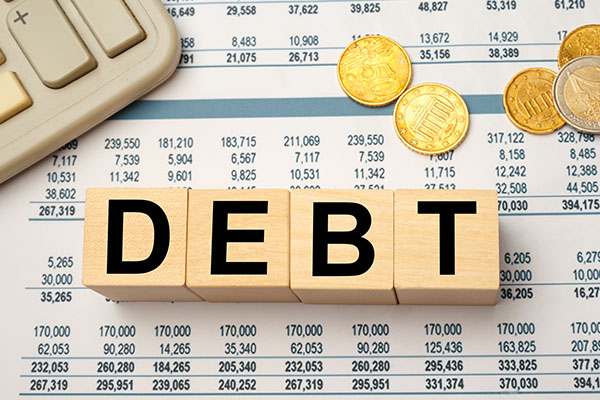
Debt: Everything in life has what we call polarity. Debt is no different. There are good and bad about it.
I know there are gurus out there who say, “Attack your smallest debt first.” Dave Ramsey is all about this although this makes sense to create some quick wins. My answer depends on two things as far as which type of debt you attack first. Number one, is the debt collateralized? Is there an asset that the debt is attached to that has a value greater than the debt? I personally hate unsecured debt, but I have no issue with secured debt whatsoever. For example, if I have an auto loan for $30,000 and my car is currently worth $40,000, then that’s not a debt that I’m concerned with at all about attacking.
However, if the interest rate is super high like 10% or anything above 6% or 7%, I’m attacking that debt even though it’s a secured debt because it’s consumer debt and it’s higher interest. If I have credit cards with balances of $35,000, then even if the interest rate is higher on the car, it’s highly unlikely, but giving you an illustration here, I’m attacking the credit cards first because that’s unsecured debt. If anything goes wrong with my income or the economy takes a dive, it affects me that I can’t liquidate or sell any of those assets to cover or reduce that debt. I maybe downsize my vehicle or something so that I have to take on less debt and less monthly obligations.
Unsecured debt causes me to lose sleep at night, especially unsecured consumer debt. If you take a vacation and you’re like, “We got to go on a vacation. We deserve it. It’s been a while. We haven’t taken one for a year. This family needs it,” and you put that on a credit card, I’m attacking that debt first. That’s high-interest consumer debt. That’s terrible for your wealth-building plan. The other condition as we hinted at is the interest rate. I don’t personally have any issue with an interest rate of 6% or less because I believe in what’s called opportunity cost.
In other words, if I pay down low-interest debt just to get debt-free then that is money that will not be able to earn a higher potentially life-changing return somewhere else. Let me explain. My wife was ready for a new SUV upgrade. We were planning on and waited a year but we needed additional tax deductions. We took advantage of what is called The 6,000 Pound End Of Year Strategy. I’ll explain that more in another episode.
We ended up picking out a Mercedes 450. The price tag was $95,000. Although we could have paid cash, the interest rate to finance the purchase was only 3%. I firmly believe in my ability to get more than a 3% return on my cash. In fact, a lot of my real estate gets 10% to 15%. In my latest self-storage syndication fund, I’m expecting a 25% return on investment based on how it’s performed over the last decade. Over 110 deals, these guys get 25% ROI on average. If I paid for the car in cash, then instead of earning 10% on my cash, I’d be saving 3%. The difference between the 2 is the opportunity cost which is 7%.
That is the opportunity cost of buying the car in cash. What’s 7% of $95,000? That’s nearly $7,000 per year in unrealized income that I’d be giving up paying for the car in cash to be debt-free. If you look at the self-storage fund and let’s say that ends up at 20% on the lower end of expectations return, now 20% minus 3% that I’m saving on paying off the car, the net is 17%. That’s over $16,000 in unrealized income given up to be debt-free.
I’m going to give you the order in which you should consider attacking debts. In personal finance, there are various options and opinions. You need to do what makes sense for you and what your risk tolerance is. I have to admit that I have a slightly higher risk tolerance than a lot of people. Although, if you weave in and out throughout my platform, you’re going to see that a lot of what I tell you is pretty conservative advice. I like responsible risk-taking. I don’t like irresponsible risk-taking.
There are various opinions out there. You need to do what makes sense for you and your risk tolerance. Share on XTypes Of Debt
The first one is unsecured high-interest debt. This is the plague. It’s Black Death Scum of the Earth debt. I don’t know if I got my point through. Sorry, I got carried away but I hope you get the point. This debt has no room in your life. In fact, you have this on your balance sheet AKA some of your net worth statement. You have very little chance of producing wealth. You cannot outpace this type of debt. You got to attack this debt. You want to go to Dave Ramsey. He’s a specialist in this. Read his books and listen to his podcast. This is what he’ll teach you to reduce. He’s a debt coach. I’m a wealth-building coach. I make no money by telling you to go listen to him but this is a situation where it makes sense.
Personally, I think that you should be getting an extra job or a side hustle to generate income to pay off this and get it out of your life once and for all. The average rep in a direct sales company makes a few extra $100 per month. There are some that make a lot more than that and some make less. That could be enough to get that paid off ten times faster than you would otherwise. If you’ve got this type of debt in your life, you need to get off your ass and shut your Netflix account down. You didn’t deserve it. You don’t earn it. You got to put some type of parameters on yourself for scrolling social media. Go get a side hustle, create some extra income, and attack this debt.
Do you want to get wealthy or not? That’s what you got to ask yourself. If you’re talking about it and not taking drastic action, then you’re bullshitting yourself. Go join the rest of America that’s going to be in debt for the rest of their fucking life right off into the sunset of delusionment. I’m here to help you get a better quality of life, look after you, and talk some sense into you. If I get a little over the top, I mean business. I want you to get results and live a better life.
Number two, unsecured mid-interest debt. This is what I’d attack next for the previous thought. I don’t like unsecured debt. It could be a credit card if you’re at 79%. High interest is probably north of 10%. If you can start getting up 15% or 20%, that’s super high interest. Attack this unsecured debt. Get it out of your life. The next up is secured high-interest debt. These are typically too common. I see this a lot in the car industry.
You could have got yourself into a bad deal or maybe you don’t have the best credit. You got an auto loan but you had to take a high-interest loan on it. Maybe it’s a toy that you shouldn’t have bought like a jet ski, snowmobile, or motorcycle. It’s collateralized. It’s secured against the value of the asset that you have the debt on. However, you want to get these paid off and clear off that high-interest rate.
Unsecured low-interest debt is most likely student loans for a lot of you. I personally make the minimum payments and let this ride. A lot of these are 2%, 3%, or 4%. They’re not setting you back that much. You got to apply an opportunity cost and learn how to be a financially intelligent investor so that you can utilize the money that you would have taken to pay this debt off. Also, you use that to invest in something where you’re getting a much higher return on your money.
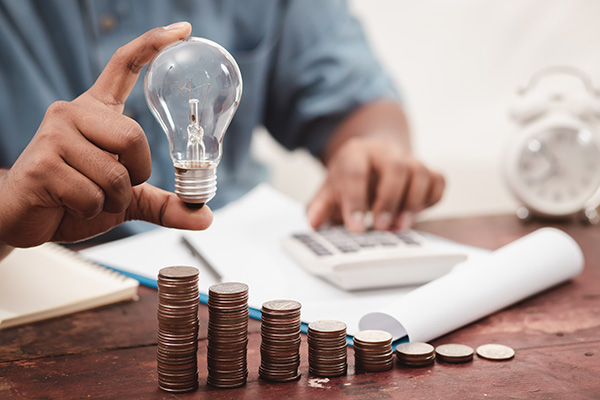
Debt: Learn how to be a financially intelligent investor to utilize the money you would’ve taken to pay your debt off and use that to invest in something where you’re getting a much higher return on your money.
Finally, my favorite form of debt is secured low-interest debt. This is most likely your primary residence. Interest rates are down for some loans into the two’s which is crazy. That’s like free money. It’s unbelievable. No wonder housing prices are going crazy. People have access to such cheap money. It’s nuts or this could be like real estate investment property. It could be a business loan like a loan against your business or you took out a loan to start a business. This is the type of debt that I embrace.
I only pay the minimum and I spread it out over as long of a period as I can. Typically, a 30-year payment or amortization schedule. Anything you pay sooner towards the principal is very tough to get out if you need it. It’s not liquid and accessible. Remember that the bank wins when you pay it down quicker because they can then take your extra cashflow that they’re getting from the debt pay down, loan it out, and make 500% more on your money. That’s why they want you to do a fifteen-year mortgage because they’re getting more cashflow faster from you on those types of deals.
The bank wins when you pay your debt down quicker because they can take the extra cash flow from the debt, pay down and loan it out, and make 500% more on your money. Share on XKeep Your Money To Yourself
That’s why they want you to refinance. Did you ever stop and think why a bank would possibly want you to refinance and send you out a postcard to get you to refinance? It’s because they’re starting the amortization schedule all over again. At the beginning of a loan, a lot of that money goes toward the principal. They’re increasing their cashflow off of you. It’s another way to look at debt. Keep that money to yourself. Spread it out as long as you can. Go invest it to create a bigger percentage, or at least put it into something that matches the interest rate on your mortgage note but gives you liquidity when you need it.
This could be like a high cash-value life insurance policy. My life insurance policy very closely matches the return on that and the interest rate that I pay on our primary residence. I like doing this because I have a quick liquid that easily taps a source of funds that I can pull money out against. The other thing is it protects my family should anything happen to me as the primary earner in the family. Anybody that I named as beneficiary on my high cash value life insurance policy gets that money tax-free, which is incredible.
I hope this helps you with the debt conversation and thinking differently about debt. You may have to read this one more time to go through it and let it sink in. If you got questions, I don’t hesitate to answer different scenarios about debt. I’d be happy to take a look at specific situations that you’re in. I’ve done this for many people in the past. They asked me, “Here’s what I’m looking at. What should I do? What should I pay down? What should I not?” I’m happy to look at those situations. Fire away. Thank you so much. Have a great day. See you in the next episode. We’re going to dive into step four. Here’s where it starts getting fun.


